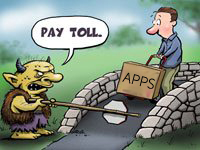
The Sct. Oil States decision depicts the greedy grubby inventor as no more than a troll who sets up a toll on a common thoroughfare (a bridge of course).
Such a toll troll deserves no more than a revocable franchise right according to the Sct. because this despicable creature is blocking the public from free passage through a common feature of commerce.
Justice Thomas writes:
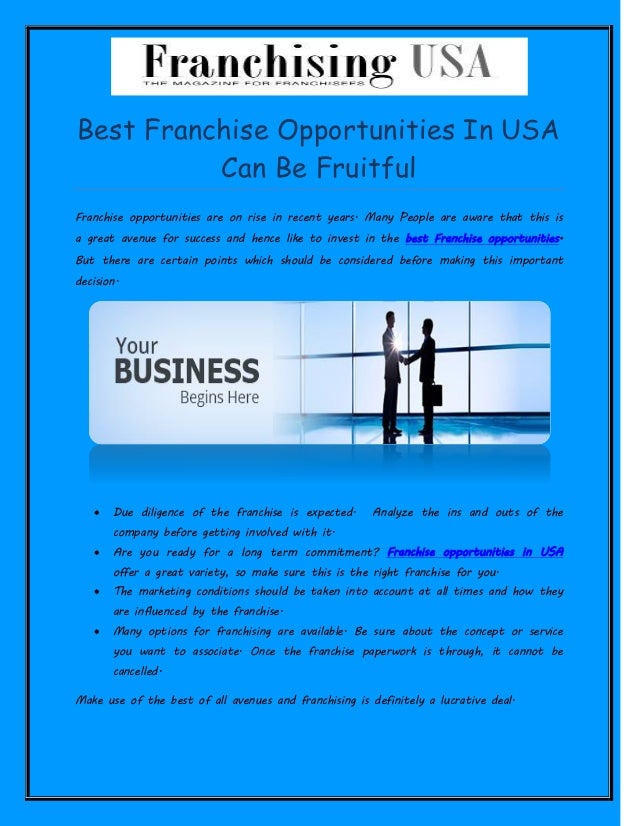 "This Court has recognized that franchises can be qualified in this manner. For example, Congress can grant a franchise that permits a company to erect a toll bridge, but qualify the grant by reserving its authority to revoke or amend the franchise. See, e.g., Louisville Bridge Co. v. United States, 242 U. S. 409, 421 (1917) (collecting cases). Even after the bridge is built, the Government can exercise its reserved authority through legislation or an administrative proceeding. ... Thus, the public-rights doctrine covers the matter resolved in inter partes review. The Constitution does not prohibit [cough, cough] the Board from resolving it outside of an Article III court. ... Patents convey only a specific form of property right—a public franchise. See Pfaff, 525 U. S., at 63-64. And patents are "entitled to protection as any other property, consisting of a franchise." Seymour, 11 Wall. at 533 (emphasis added). As a public franchise, a patent can confer only the rights that "the statute prescribes." ....
"This Court has recognized that franchises can be qualified in this manner. For example, Congress can grant a franchise that permits a company to erect a toll bridge, but qualify the grant by reserving its authority to revoke or amend the franchise. See, e.g., Louisville Bridge Co. v. United States, 242 U. S. 409, 421 (1917) (collecting cases). Even after the bridge is built, the Government can exercise its reserved authority through legislation or an administrative proceeding. ... Thus, the public-rights doctrine covers the matter resolved in inter partes review. The Constitution does not prohibit [cough, cough] the Board from resolving it outside of an Article III court. ... Patents convey only a specific form of property right—a public franchise. See Pfaff, 525 U. S., at 63-64. And patents are "entitled to protection as any other property, consisting of a franchise." Seymour, 11 Wall. at 533 (emphasis added). As a public franchise, a patent can confer only the rights that "the statute prescribes." ....
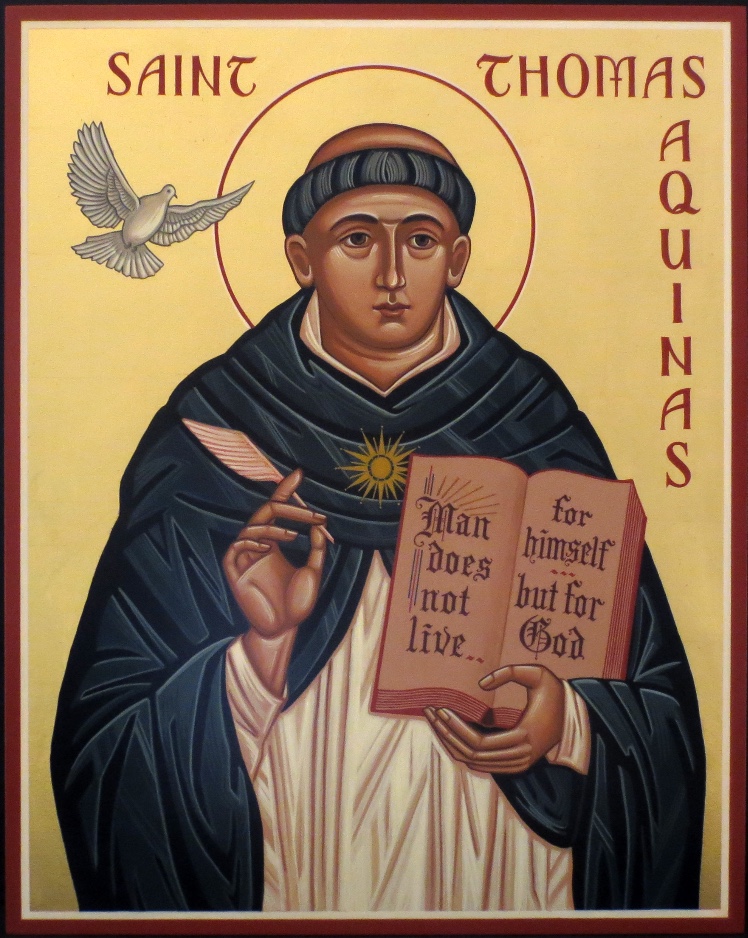
Missing from the holy lips of our Saint Thomas are three simple Latin words:
QUID PRO QUO
Saint Thomas Inquisitor instead sees the playing field as this:
"As this Court has long recognized, the grant of a patent is a matter between "the public, who are the grantors, and . . . the patentee." Duell, supra, at 586 (quoting Butterworth v. United States ex rel. Hoe, 112 U. S. 50, 59 (1884)). By "issuing patents," the PTO "take[s] from the public rights of immense value, and bestow[s] them upon the patentee." United States v. American Bell Telephone Co., 128 U. S. 315, 370 (1888). Specifically, patents are "public franchises" that the Government grants "to the inventors ..." ... To Be Continued
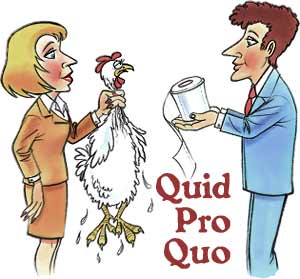
Till recent times it was the inventor who was the giver and the public the taker.
QUID PRO QUO
The inventor gives his passions, sweat, life blood, time, money and all his know how (his best mode) to the public as part of an offer and acceptance contract deal.
All he gets for it is a stupid piece of paper.
It is the public who are the takers and the benefactors of the deal. The inventor cannot un-ring the bell by retrieving that which he trustingly handed over to the public, the thing we used call his intellectual "property" (IP). According to the Supremes however, the public can re-neg on their end of deal and freely take back that stamped piece of worthless paper.
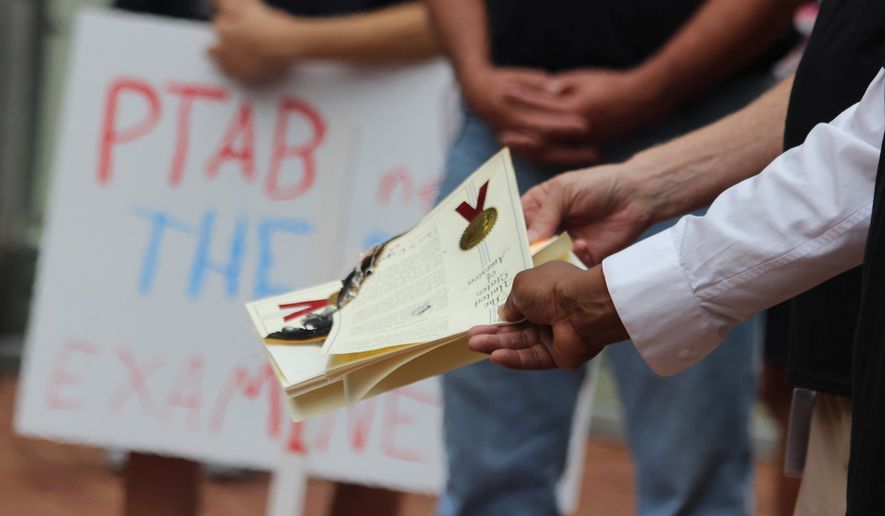

No comments:
Post a Comment